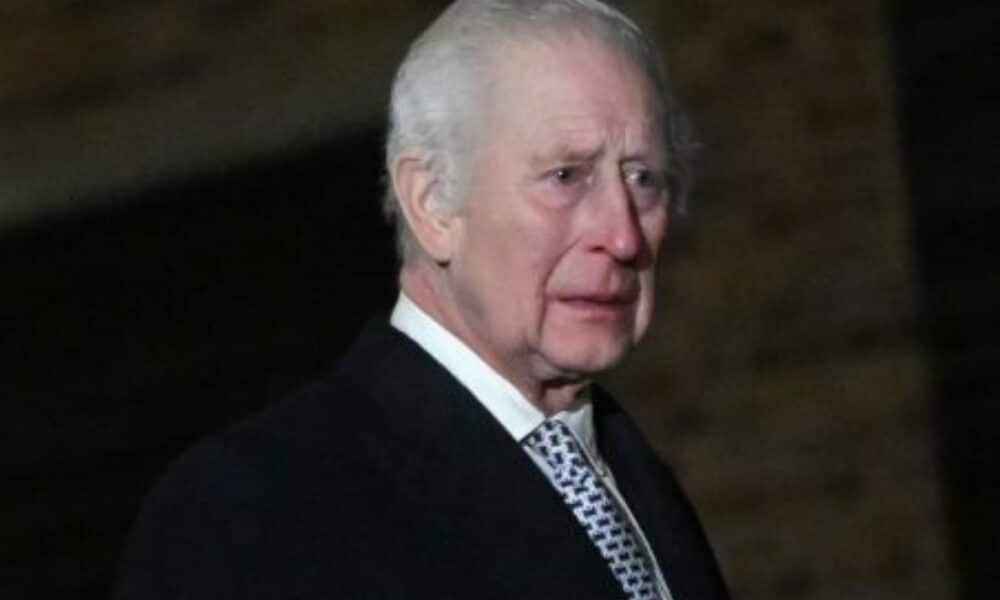Share
Tweet
Share
Share
King Charles III, 76 years old, received a terminal cancer diagnosis in February 2024, following a surgical procedure in London. The condition, which does not respond to treatments, was confirmed in March 2025 during a conversation with Prince William, 42 years old, initiating preparations for the transition at Buckingham Palace. This revelation occurs amid the rapid deterioration of the monarch’s health, who ascended the throne in September 2022, and reflects the need to ensure continuity for the British monarchy.
The news generated immediate repercussions in the United Kingdom, with a drastic reduction in Charles’s public agendas. Palace authorities organize a discreet farewell ceremony, while William assumes central roles in the succession.
Sources close to the matter indicate a possible pancreatic tumor as the main cause, limiting medical options. The episode marks the second royal mourning in three years, following the death of Elizabeth II.
Discreet preparations at the palace
The Buckingham Palace team coordinates logistics for a smooth succession, prioritizing institutional stability. William, with public approval above 60%, is positioned as a modern leader to address social debates.
The farewell ceremony, without a defined date, follows traditional protocols adapted to the urgency. Kate Middleton, recovered from her own cancer in 2024, supports her husband in key events.
Progressive decline in royal health
The tumor was detected during prostate treatment in February 2024, evolving to the terminal stage. Doctors opted for palliative care, focusing on the king’s comfort.
Public appearances have dropped to essential events alongside Camilla Parker Bowles. This restriction preserves energy but highlights the severity of the condition.
Speculations about pancreatic origin circulate, without official confirmation. The family monitors the months-long prognosis, adjusting daily routines.
The impact on the agenda reflects rapid adaptations, with cancellations in international commitments. Charles prioritizes family meetings in his final days.
Family conversations and strengthened bonds
The dialogue between Charles and William in March 2025 highlighted the monarch’s emotional vulnerabilities. This exchange reinforced unity, preparing the prince for expanded responsibilities.
Kate acts as a pillar, balancing care for their children George, Charlotte, and Louis. The family dynamic gains prominence amid the crisis.
The relationship with Prince Harry remains distant since 2020, limiting reconciliations. William informed his brother, but attendance at future events is uncertain.
Father-son bonds: March dialogue strengthens William’s preparation.Kate’s role: Essential support in the royal transition.Tensions with Harry: Barriers persist despite updates.Environmental legacy and interrupted modernization
Charles III dedicated his short reign to causes like sustainability, launching global initiatives. His commitment to the environment influenced projects like the Earthshot Prize, now under William’s leadership.
The illness shortens monarchical reform plans, transferring the vision to the successor. William inherits an agenda of interfaith dialogue and social adaptations.
The palace emphasizes Charles’s contributions in internal speeches. This heritage positions the crown as an agent of change, despite the mourning context.
Pressures on the future king
William faces a double burden in supporting his father and training for the throne. His popularity and practical approach are leveraged to renew the royal image.
The routine includes balancing his children’s education amid protocol events. Public opinion, favorable to the monarchy, supports the transition as renewal.
Preparations involve coronation simulations and logistical adjustments. The prince monitors debates on institutional relevance in the digital era.
Medical details and key chronologyInitial surgery: February 2024 reveals tumor during procedure.Terminal confirmation: March 2025 in private conversation.Agenda reduction: Limited to local events since April.Current care: Palliative prioritizes quality of life.
The rapid progression of the suspected pancreatic cancer has exhausted conventional therapies. Charles, aware of the prognosis, focuses on family and institutional legacy, while the United Kingdom prepares for the William era.

